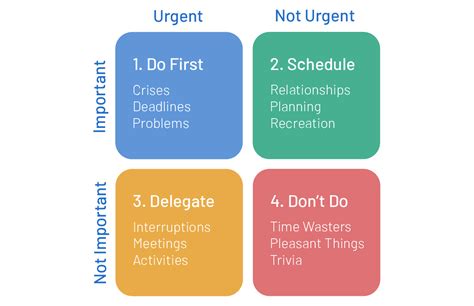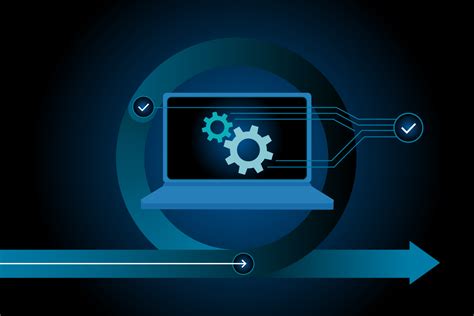Efficient time management is essential for achieving productivity and success in both personal and professional endeavors. Aiming for optimum utilization of the limited hours in a day, individuals constantly seek better ways to manage their time effectively. Time management encompasses a series of skills that enable individuals to prioritize tasks, set goals, and allocate their time efficiently to achieve desirable outcomes. Developing and enhancing these skills can contribute significantly to increased productivity, reduced stress levels, and improved overall well-being.
Here are seven strategies that can help you enhance your time management abilities:
1. Prioritization: Understanding the importance and urgency of tasks is crucial for effective time management. By prioritizing tasks based on their significance and deadlines, you can ensure that you allocate your time wisely and focus on the most important tasks first.
2. Goal setting: Clearly defining your long-term goals, as well as short-term objectives, can provide you with a sense of direction and purpose. Setting specific, measurable, attainable, relevant, and time-bound (SMART) goals will help you stay focused and motivated, enabling you to manage your time effectively towards achieving these goals.
3. Planning and scheduling: Developing a well-structured plan and allocating specific time slots for different activities can help you stay organized and reduce procrastination. Utilizing tools such as calendars, to-do lists, and time management apps can assist in creating a detailed schedule that allows you to allocate time for different tasks efficiently.
4. Delegation: Recognizing when to delegate tasks to others can free up your time and enable you to focus on activities that require your expertise and attention. Delegating tasks to capable individuals not only enhances their skills but also helps in accomplishing goals more effectively within the given time frame.
5. Avoiding multitasking: Although multitasking may seem like a way to accomplish more in less time, it often leads to decreased productivity and increased errors. Instead, practicing single-tasking and giving your undivided attention to one task at a time can result in better concentration, efficiency, and ultimately, effective time management.
6. Eliminating distractions: In today's digital age, distractions are abundant, and they pose a significant challenge to time management. Minimizing distractions, such as turning off notifications, creating a designated workspace, and implementing time blocks for focused work, can greatly improve your ability to manage your time effectively.
7. Regular self-reflection and evaluation: Taking the time to reflect on your time management practices and evaluating their effectiveness can help you identify areas for improvement. Assessing how you spend your time, identifying time-wasting activities, and making necessary adjustments can lead to continuous growth and enhancement of your time management skills.
By implementing these strategies and consistently evaluating your time management practices, you can unlock your full potential, maximize productivity, and lead a more balanced and fulfilling life.
Prioritize Tasks for Optimal Efficiency

In today's fast-paced world, the ability to prioritize tasks has become an essential skill for maximizing productivity and achieving goals. By effectively managing and organizing your tasks, you can ensure that you focus your time and energy on the most important and impactful activities, while minimizing wasted effort on less significant tasks. In this section, we will explore effective strategies to prioritize tasks and boost your overall efficiency.
1. Categorize tasks based on urgency and importance: Assess the time sensitivity and significance of each task to determine their priority levels. This classification can help you allocate your resources wisely and concentrate on tasks that require immediate attention or have a significant impact on your objectives.
2. Break down complex tasks into smaller, manageable steps: When faced with daunting or overwhelming projects, divide them into smaller subtasks that are easier to handle. This approach allows for a more systematic and structured approach to the task, making it less intimidating and more feasible to complete.
3. Consider deadlines and deliverables: Take into account any deadlines or deliverables associated with your tasks. By focusing on completing tasks with impending deadlines or those that contribute to key deliverables, you can maintain momentum and ensure timely completion of important milestones.
4. Identify tasks with high impact: Pinpoint tasks that have the potential to significantly contribute to your goals or yield substantial results. These high-impact tasks should be given priority, as they can create a ripple effect and positively influence other aspects of your work.
5. Assess your own strengths and weaknesses: Recognize your own strengths and weaknesses in relation to various tasks. Prioritize tasks that align with your strengths, as you are more likely to complete them efficiently and effectively. Delegate or seek assistance for tasks that fall outside your expertise or are time-consuming for you.
6. Consider dependencies and prerequisites: Identify tasks that are dependant on the completion of other tasks or require certain prerequisites. By prioritizing tasks that are prerequisites for other activities, you can ensure a smooth flow of work and avoid bottlenecks that may hinder progress later on.
7. Regularly review and reassess priorities: Priorities can change as circumstances evolve or new information becomes available. It is important to regularly review and reassess your task priorities to ensure they remain aligned with your overall goals and objectives. This flexibility allows you to adapt to changing conditions and optimize your time management strategies.
By incorporating these strategies into your time management approach, you can prioritize tasks effectively and increase your efficiency in accomplishing your goals. Remember to regularly evaluate your prioritization methods and make adjustments as needed to stay on track and optimize your productivity.
Develop Clear Objectives and Set Deadlines
Creating well-defined and attainable goals is essential for effective time management. By clearly outlining what you want to achieve, you can stay focused and motivated. Setting deadlines provides a sense of urgency and helps you prioritize your tasks.
Start by identifying the specific outcomes or results you aim to accomplish within a given timeframe. Break down larger goals into smaller, manageable tasks that can be completed step by step. This approach allows for greater clarity and makes it easier to track progress.
Once you have established your objectives, assign realistic deadlines to each task. Deadlines act as milestones, keeping you on track and holding you accountable for completing your work in a timely manner. Make sure to consider the complexity and importance of each task when determining deadlines.
Additionally, consider using tools and techniques such as to-do lists, planners, or digital calendars to help you stay organized and keep track of your goals and deadlines. Regularly reviewing and adjusting your objectives and deadlines can also ensure that they remain relevant and aligned with your overall priorities.
Remember, setting clear goals and deadlines not only improves your time management skills but also enhances your productivity and overall effectiveness. By having a clear roadmap and a sense of urgency, you can accomplish more in less time and experience a greater sense of accomplishment.
Eliminating Time-Wasting Activities

In order to optimize our use of time, it is crucial to identify and eliminate activities that consume our valuable resources without providing significant value in return. By minimizing or completely eliminating these distractions, we can free up more time to focus on tasks that truly matter and improve our overall productivity.
To help you identify and tackle time-wasting activities, consider implementing the following strategies:
- Set clear priorities: Clearly define your goals and prioritize tasks accordingly. Focus on activities that align with your long-term objectives and eliminate those that do not contribute to your overall success.
- Avoid multitasking: While multitasking may seem efficient, it often leads to decreased productivity and reduced focus. Instead, concentrate on one task at a time and allocate dedicated blocks of time for each activity.
- Create a structured schedule: Develop a daily or weekly schedule that outlines specific time slots for different tasks and activities. Stick to this schedule as much as possible to minimize time wasted on indecisiveness or aimless wandering.
- Delegate responsibilities: Learn to delegate tasks that can be handled by others. By sharing the workload, you can free up your own time and focus on more important responsibilities.
- Limit distractions: Identify and minimize common distractions such as social media, excessive email checking, or unnecessary meetings. Consider using productivity tools or apps that help block or limit access to these distractions during key work periods.
- Practice effective communication: Strengthen your communication skills to minimize time wasted on misunderstandings or unnecessary back-and-forths. Be clear, concise, and direct in your interactions to avoid unnecessary delays or confusion.
- Regularly evaluate and adjust: Continuously assess your activities and how you spend your time. Identify any recurring patterns of time-wasting and make necessary adjustments to your routines and habits.
By taking proactive steps to identify and eliminate time-wasting activities, you can make the most of each day and enhance your overall time management skills. Embracing these strategies will allow you to focus on tasks that truly matter and achieve greater efficiency in both your personal and professional life.
Learn to Delegate and Outsource
Discover the art of entrusting tasks and externalizing activities to optimize your productivity.
Developing the ability to delegate and outsource is a valuable skill that can significantly enhance your efficiency in managing time and resources. Delegation involves assigning responsibilities to others within your team or organization, allowing you to focus on tasks that require your expertise and attention. By entrusting certain tasks to capable individuals, you can streamline your workload and ensure that every aspect of a project is executed effectively.
Outsourcing, on the other hand, involves seeking external assistance or agencies to handle specific tasks or projects. This can be especially beneficial for complex or time-consuming tasks that are not within your area of expertise. By outsourcing these responsibilities to professionals or specialized agencies, you can tap into their skills and knowledge, freeing up your time to prioritize other critical areas of your work.
Learning to delegate and outsource effectively requires careful consideration and planning. It is essential to identify tasks that can be delegated or outsourced without compromising quality or timelines. Clear communication and guidance are crucial when handing over responsibilities to ensure that the delegated individuals or outsourced professionals understand your expectations and requirements.
By mastering the art of delegation and outsourcing, you can enhance your productivity, reduce stress, and make the most efficient use of your time and skills. Delegating tasks to capable team members empowers them, fosters a sense of trust, and promotes collaboration within the team. Outsourcing, on the other hand, provides access to experts and resources that may not be available within your organization, enabling you to achieve optimal results.
Remember, effective delegation and outsourcing go beyond simply offloading tasks. It involves strategic decision-making and careful consideration of the tasks at hand. Embrace this skill, and you will find yourself better equipped to manage your time and accomplish your goals more efficiently.
Utilize Technology to Streamline Workflow

In today's fast-paced world, utilizing technology is essential to optimize productivity and make the most out of your time. By harnessing the power of technology, individuals can streamline their workflow and enhance their efficiency in various tasks. This section explores different ways to employ technology effectively to improve time management and maximize productivity.
1. Embrace productivity apps: With a plethora of productivity apps available, take advantage of these tools to organize your tasks, set reminders, and track your progress. Whether it's a to-do list app or a calendar app, find the ones that suit your needs and integrate them into your daily routine.
2. Automate repetitive tasks: Technology enables automation of repetitive tasks that consume a significant amount of your time. Identify recurring activities and explore software or tools that can automate them, freeing up your valuable time for more important tasks.
3. Collaborate using project management tools: Collaborative project management tools allow you to work efficiently with teams by providing a centralized platform for communication, task delegation, and progress tracking. These tools streamline the flow of information and foster effective collaboration, ensuring everyone remains on the same page.
4. Make use of time tracking software: Time tracking software provides a comprehensive overview of how you spend your time throughout the day. By analyzing this data, you can identify time-wasting activities and allocate your time more effectively to tasks that truly matter.
5. Utilize cloud storage: Cloud storage solutions offer the convenience of accessing your files from anywhere at any time. Store your important documents, presentations, and files on the cloud to eliminate the need for physical storage devices and enhance accessibility.
6. Leverage communication tools: Communication is vital for effective time management. Utilize communication tools such as instant messaging platforms or video conferencing software to streamline and expedite communication with colleagues, clients, or team members located in different geographic locations.
7. Explore task management software: Task management software helps individuals stay organized by providing a centralized platform to prioritize, delegate, and track progress on tasks. This software enables efficient task management, ensuring that deadlines are met and objectives are achieved.
By incorporating technology into your workflow, you can optimize your time management efforts, improve productivity, and achieve a better work-life balance. Identifying the right tools and integrating them seamlessly into your routine will contribute to enhancing your overall efficiency and effectiveness.
FAQ
What are some effective ways to enhance time management skills?
Some effective ways to enhance time management skills include setting clear goals, prioritizing tasks, creating a schedule, eliminating distractions, and delegating tasks when possible.
How can I set clear goals to improve my time management skills?
To set clear goals, start by identifying what you want to achieve. Break these goals down into smaller, actionable steps, and set specific deadlines for each step. This will help you stay focused and better manage your time.
What can I do to prioritize tasks effectively?
To prioritize tasks effectively, start by determining the urgency and importance of each task. Use tools like the Eisenhower Matrix to categorize tasks into four quadrants: urgent and important, important but not urgent, urgent but not important, and neither urgent nor important. This will help you prioritize your tasks based on their significance.
How can I create a schedule that helps improve my time management skills?
To create a schedule that improves time management, start by blocking out dedicated time for specific tasks and activities. Use tools like calendars or planner apps to schedule your day, ensuring that you allocate enough time for each task. Be realistic with your time estimates and allow some flexibility for unexpected events.
What are some strategies to eliminate distractions and improve time management?
To eliminate distractions, try turning off notifications on your phone or computer, setting specific times for checking emails or messages, and creating a dedicated workspace free from distractions. Use time-blocking techniques to increase focus and minimize interruptions.



